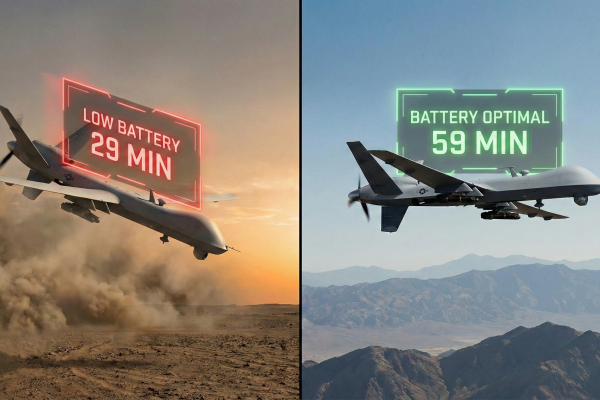June 18th, 2024 | 06:45 CEST
BYD has to pay punitive tariffs - How will this affect Altech Advanced Materials and Volkswagen?
In the midst of turbulent trade disputes, the situation in the global electric vehicle market is coming to a head. The EU has announced punitive tariffs on Chinese electric vehicles from July 4, and manufacturers such as BYD, Geely, and SAIC are therefore in the spotlight. The EU Commission accuses the Chinese vehicle manufacturers of benefiting from state subsidies, thus entering the European market with a competitive advantage. The level of duties depends on the manufacturers' willingness to cooperate with the investigations. Duties can range between 17.4% and 38.1%. The planned measures are shaking up the industry and further escalating the trade conflicts with China. German vehicle manufacturers fear retaliatory measures.
time to read: 4 minutes
|
Author:
Armin Schulz
ISIN:
BYD CO. LTD H YC 1 | CNE100000296 , Altech Advanced Materials AG | DE000A31C3Y4 , VOLKSWAGEN AG VZO O.N. | DE0007664039
Table of contents:

"[...] We know exactly what we are doing and are implementing what we consider to be a proven technology in an industrially applicable and scalable way. [...]" Uwe Ahrens, Director, Altech Advanced Materials AG
Author
Armin Schulz
Born in Mönchengladbach, he studied business administration in the Netherlands. In the course of his studies he came into contact with the stock exchange for the first time. He has more than 25 years of experience in stock market business.
Tag cloud
Shares cloud
BYD - Reacts calmly and has a plan
BYD has prepared for the EU's latest punitive tariffs with the strategic foresight of a chess master. The Chinese car and bus manufacturer announced the construction of a new factory in Szeged, Hungary, back in December 2023, even before the full impact of the tariffs hit. This smart decision is in line with their existing bus manufacturing facility since 2017 and aims to avoid the relatively moderate punitive tariffs of 17.4%. The Company is, therefore, taking a relaxed approach to the situation. The Chinese company has also already developed a strategy for the US to circumvent possible punitive tariffs by means of a factory in Mexico.
Since the beginning of June, BYD has officially had the order to supply Tesla with battery cells for its energy storage division in China. From Q1 2025, BYD's subsidiary FinDreams will supply the cells to Tesla's energy storage factory in Shanghai. This marks a significant step in the collaboration between the two companies in the field of energy storage solutions. For Tesla, this means that FinDreams will strongly complement CATL as the main supplier. For BYD, this opens up a new revenue stream, which should be beneficial in the highly competitive EV market.
In addition, BYD and Nio have received the green light from Chinese regulators to test their autonomous driving technologies on public roads. These approvals will allow testing in major cities such as Beijing, Shanghai, and Guangzhou. Operationally, things are going well for BYD. There is also a tailwind from the analyst side. In the last 90 days, two analysts have covered the share, and both have given it a strong "Buy" rating. The share has been climbing since mid-March and is currently trading at EUR 27.83.
Altech Advanced Materials - Consolidated after the capital measures
Altech Advanced Materials has taken a significant step in battery technology and is not directly affected by punitive tariffs. Its newly developed CERENERGY® battery, based on sodium chloride, offers decisive advantages over conventional lithium-ion batteries. The solid-state battery impresses with its non-flammability and high-temperature tolerance without additional cooling or heating. Another plus point is the long service life of over ten years, which lasts significantly longer than its lithium counterparts. The supply chain is less susceptible to geopolitical risks because the battery does not require critical materials such as lithium, cobalt or graphite.
The Company plans to build a production facility in Saxony, Germany. This plant will start with an initial capacity of 120 MWh per year and will require an estimated investment of EUR 180 million. Financing will be provided through a combination of government funding, venture capital, and a green bond. The Company has already completed a detailed feasibility study, which forecasts an EBIT margin of 47% and an internal rate of return of 19%. The securing of purchase agreements with major energy suppliers for the first 5 years is also in full swing. The economic conditions for the CERENERGY® project are promising.
In addition, Silumina Anodes™, a new type of silicon and graphite coating process developed by the Company, is in the starting blocks. The process increases battery performance by at least 30% in terms of energy density and service life. A feasibility study completed last year showed promising results. Altech plans to industrialize the Silumina Anodes™ technology and produce the coated anode material on a large scale to potentially supply it to automotive and battery manufacturers. The share price came under pressure last Friday, likely due to the admission of 4,717,500 new shares. The share is currently trading at EUR 3.60.
Volkswagen - Concern about countermeasures
Volkswagen firmly rejects the EU's planned punitive tariffs on electric vehicles from China. The Company believes that this is the wrong approach, which impairs free trade and raises fears of an escalation of the trade conflict with China. VW warns of possible countermeasures by China, which could hit German vehicle manufacturers particularly hard. With a significant presence in China, VW sees considerable risks for its own sales market due to a deterioration in trade relations. Other German automotive groups like BMW and Mercedes also share these concerns.
Especially after the European vehicle market recorded a remarkable growth of 13.7% in April, Spain grew by an impressive 23.1%, Germany rose by 19.8%, France recorded an increase of 10.9%, and Italy scored with an increase of 7.7%. This development led to a total of 913,995 new registrations, according to data from the European Automobile Manufacturers' Association (ACEA). Such figures are good for vehicle manufacturers like Volkswagen, as these figures show signs of a stabilizing European economy.
The Company plans to launch affordable electric vehicles in Europe from 2027, which are expected to cost around EUR 20,000. This initiative follows the failed partnership attempt with Renault. Volkswagen aims to bring the price and launch date of the ID.1 series in line with Renault's electric Twingo. The punitive tariffs could protect the European market from Chinese vehicle brands in the short term. However, if the Chinese government wants to retaliate, this will make it more difficult for European manufacturers to enter the Middle Kingdom. Investors fear exactly that and have sent the share price plummeting. One share currently costs EUR 104.05.
Despite the EU's punitive tariffs, BYD is proving resilient with its strategic expansion in Hungary and cooperation with Tesla. At the same time, Altech Advanced Materials remains unaffected with its innovative CERENERGY® batteries and silicon anodes and is expanding in Germany. Volkswagen rejects the measures out of concern for possible Chinese retaliation but still plans to introduce affordable electric vehicles in Europe from 2027. It will be interesting to see the reaction from China.
Conflict of interest
Pursuant to §85 of the German Securities Trading Act (WpHG), we point out that Apaton Finance GmbH as well as partners, authors or employees of Apaton Finance GmbH (hereinafter referred to as "Relevant Persons") may hold shares or other financial instruments of the aforementioned companies in the future or may bet on rising or falling prices and thus a conflict of interest may arise in the future. The Relevant Persons reserve the right to buy or sell shares or other financial instruments of the Company at any time (hereinafter each a "Transaction"). Transactions may, under certain circumstances, influence the respective price of the shares or other financial instruments of the Company.
In addition, Apaton Finance GmbH is active in the context of the preparation and publication of the reporting in paid contractual relationships.
For this reason, there is a concrete conflict of interest.
The above information on existing conflicts of interest applies to all types and forms of publication used by Apaton Finance GmbH for publications on companies.
Risk notice
Apaton Finance GmbH offers editors, agencies and companies the opportunity to publish commentaries, interviews, summaries, news and the like on news.financial. These contents are exclusively for the information of the readers and do not represent any call to action or recommendations, neither explicitly nor implicitly they are to be understood as an assurance of possible price developments. The contents do not replace individual expert investment advice and do not constitute an offer to sell the discussed share(s) or other financial instruments, nor an invitation to buy or sell such.
The content is expressly not a financial analysis, but a journalistic or advertising text. Readers or users who make investment decisions or carry out transactions on the basis of the information provided here do so entirely at their own risk. No contractual relationship is established between Apaton Finance GmbH and its readers or the users of its offers, as our information only refers to the company and not to the investment decision of the reader or user.
The acquisition of financial instruments involves high risks, which can lead to the total loss of the invested capital. The information published by Apaton Finance GmbH and its authors is based on careful research. Nevertheless, no liability is assumed for financial losses or a content-related guarantee for the topicality, correctness, appropriateness and completeness of the content provided here. Please also note our Terms of use.




